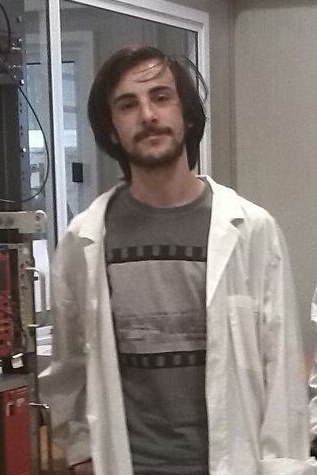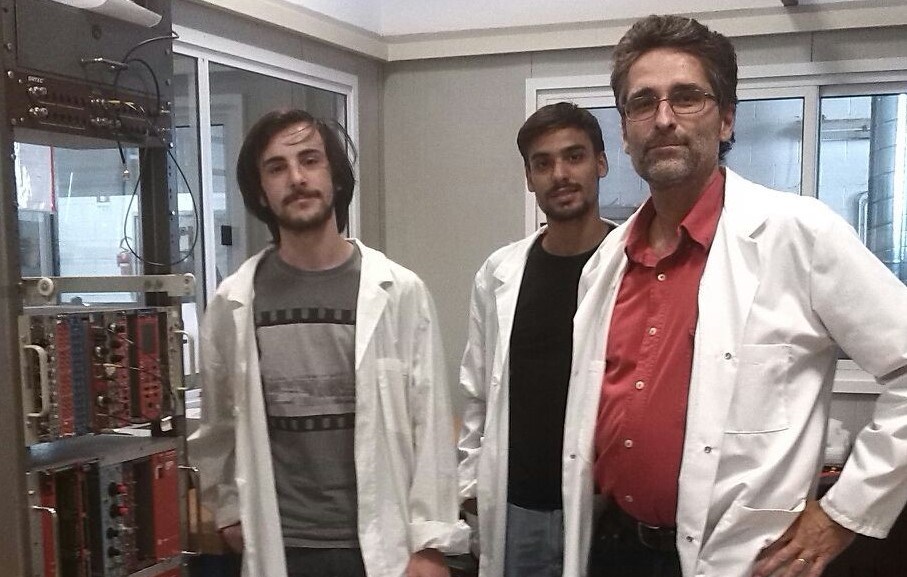Internship at IFP Piero Caldirola in Milano, Italy
Reported by Luca Cocconi. Powered by FuseNet.
 My name is Luca Cocconi and, as of September 2016, I am just a couple weeks away from the beginning of my third year as an undergraduate student in Theoretical Physics at Imperial College, London. With some luck, I was given the fantastic opportunity to do a two-month FuseNet-supported internship at the Plasma Physics Institute (IFP) 'Piero Caldirola' in Milan, which is part of the National Research Council (CNR). In particular, during my stay in Italy I joined the informally-called ‘Neutron Group’, which has been developing plasma diagnostics that are suitable for application in JET in Culham (UK) during the last couple of years. The group’s main focus is on Neutron Emission Spectroscopy (how unexpected) and Gamma Ray Spectroscopy, which both are very useful as techniques to characterise the properties of fusion plasmas when direct measurements are no longer feasible.
My name is Luca Cocconi and, as of September 2016, I am just a couple weeks away from the beginning of my third year as an undergraduate student in Theoretical Physics at Imperial College, London. With some luck, I was given the fantastic opportunity to do a two-month FuseNet-supported internship at the Plasma Physics Institute (IFP) 'Piero Caldirola' in Milan, which is part of the National Research Council (CNR). In particular, during my stay in Italy I joined the informally-called ‘Neutron Group’, which has been developing plasma diagnostics that are suitable for application in JET in Culham (UK) during the last couple of years. The group’s main focus is on Neutron Emission Spectroscopy (how unexpected) and Gamma Ray Spectroscopy, which both are very useful as techniques to characterise the properties of fusion plasmas when direct measurements are no longer feasible.
A LaBr3 spectrometer for conditions with high gamma rates
The aim of my relatively brief project was to benchmark a system for laboratory simulation of JET-like high gamma rate background conditions based on a Detector Emulator. Such a DE is basically an advanced pulse generator that is capable of reproducing the emission and energy spectrum of an arbitrary source. Connected to a LED and given the proper input information, the DE should be able to recreate the working condition of a Gamma Ray Spectroscopy system inside the JET Gamma-Ray Camera. All of this without having to leave the laboratory! The performances of the spectroscopic solution adopted (LaBr3 crystal + Si photomultiplier) were compared with previous measurements to assess the reliability of such simulation.
Hands-on experience: wires and electronics in the lab
Although my academic interests are mainly theory-oriented, I was pleased to have the chance to develop some hands-on experience concerning state-of-the-art technological applications adopted in the context of Fusion. In the hot and humid Milan summer, I spent a good part of my days working with an Italian PhD student in an air-conditioned lab, wiring and coupling electronic stuff over a two-desk long experimental setup. Most of what I learnt during this internship was specifically oriented towards the understanding of the mechanisms exploited in radiation detection and the different techniques available. In this way, by the end of the internship, I believe I developed just enough intuition to give some personal contribution, in the context of an open discussion which I hugely appreciated from the IFP people. It really made me feel part of a team.
In perspective, it was also nice (and a bit strange) to experience the life of a researcher, while working not too far away from a region in which I used to live, before I moved to the UK for my undergraduate studies. I am sure that this internship will be helpfull when the time comes to take a more definitive decision about my future plans, hopefully within the academia. And I do want to thank FuseNet for this.

